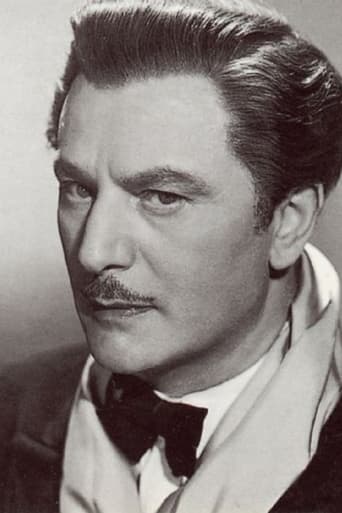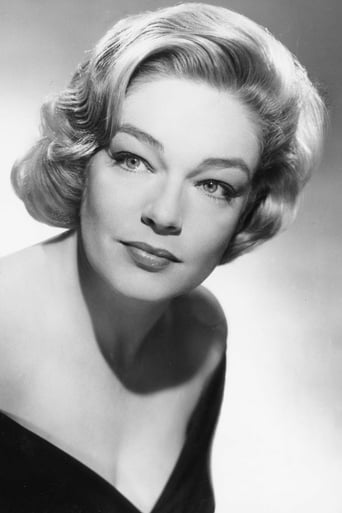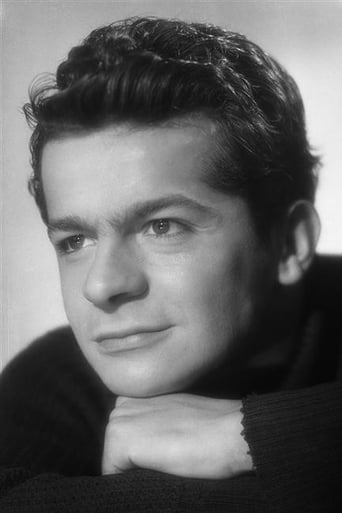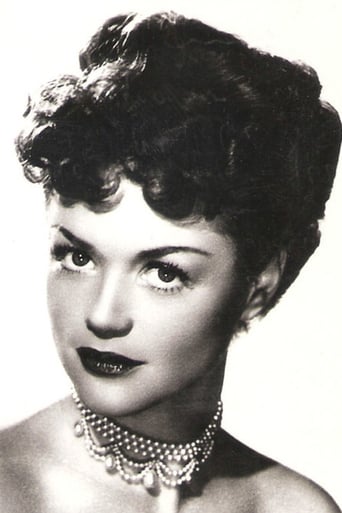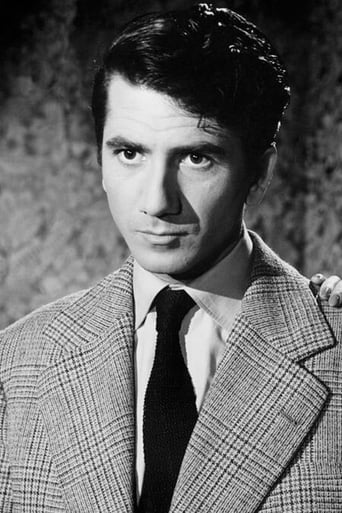Lumsdal
Good , But It Is Overrated By Some
StyleSk8r
At first rather annoying in its heavy emphasis on reenactments, this movie ultimately proves fascinating, simply because the complicated, highly dramatic tale it tells still almost defies belief.
AshUnow
This is a small, humorous movie in some ways, but it has a huge heart. What a nice experience.
Arianna Moses
Let me be very fair here, this is not the best movie in my opinion. But, this movie is fun, it has purpose and is very enjoyable to watch.
dokuz10
I like to avoid films that are too "theatrical" and/or "musical." This film is one of the few that showed me the there is a way to make the combination intriguing. I loved the self-conscious narrator. Despite the annoying singing (imo), he is a comic relief. He makes you take another look at the sequence before and after his appearance. Yes, there are symbolism and commentary in the film. But noticing these is not necessary to enjoy the wonderful cyclical visual storytelling. As the narrator says we are here for "the love of art of love" or the dirtiness of it depending on which way you look. Simple and masterful enough. I agree with the other commenters praising Ophüls' style.
dwij-44289
The film is paced well - not too fast, nor too slow - and is paired with a nice waltzy ballad, sung here by the ever brilliant Anton Walbrook.It is sometimes difficult to relate to the characters in this film; one questions whether such casual infidelities and flings were as common - as they are portrayed here - back in 1800s Vienna. Perhaps among aristocrats and the military. Less so the middle-class and less so Austria in this present century...
When preparing to watch this film, the viewer must not expect a serious or bleak tale about dysfunctional relationships. For this one is an airy, flowing, winking ode to love in its many forms (if one can call it love), lost in its own romance....When I was watching 'La ronde', i was thinking how exciting it would have been if this story of interconnected tales of love included a man with a philandering wife who himself is in love with another man... Surely if the 1950s audience could view a film depicting polyamory in positive light, they should be cool with homosexuality (on a side note, 'Les enfants terribles' released the same year makes clear the male hero's love for another man). Perhaps it is my 21st century mind that makes me notice the heteronormativity of this film. Or how about, if the story includes a person seducing another person but the recipient does not respond to it, and instead gets together with somebody else, thus continuing the 'love circle'?And also i thought the film would come to a neat conclusion with the last 'lover' finally putting an end to this circle by settling down and committing to another, by marrying him/her and saying those vows while MEANING it. But maybe such an ending would have gone against Max Ophuls' message that the ring of various loves is never ending, and instead goes on and on until death....
gsygsy
Vienna 1900. But actually a film studio in France. Ophuls never lets you forget that. This masterwork is deeply concerned with truth and illusion. In love and in art, in the art of love. It is charming whilst showing you the limitations of charm, seductive whilst demonstrating the hazards of seduction. Great as it is, it probably is not the peak of the director's achievement: LETTER FROM AN UNKNOWN WOMAN, MADAME DE... and LOLA MONTES probably have better claims to that accolade. But the rare weak moments do not, in my view, detract from LA RONDE's status as a masterpiece, since over all its quality is so high. It boasts a dazzling cast, led by wonderful Anton Walbrook, and a theme tune by Oskar Straus that will follow you around for the rest of your life.
Terrell-4
"What is still missing for love to start its rounds? A waltz...and here it is. The waltz turns. The carousel turns...and the merry-go-round of love can begin turning, too." If Le Plaisir is a clever study in how pleasure can lead to despair, hopelessness and, fortunately, more pleasure, and if Madame D... is a masterpiece of love's elegant sadness, perhaps La Ronde can be seen as a carousel of pleasure, where men and women's most natural instinct is celebrated with joy and infidelity. Max Ophuls' La Ronde is a wonderful mixture of anticipation, pleasure and rue. It might even make you think wisdom could be involved. We're now in Vienna in 1900, a world of waltz, where lovers change lovers until we come back full circle. This delightful waltz includes counts, maids, actresses, soldiers, poets, prostitutes and married couples. Thanks to our host and escort, played by Anton Walbrook, we are not simply observers. We're complicit. "I am you," he tells us, "the personification of your desire to know everything." On this carousel of pleasure, amusingly disguised for some as love, we can savor both the situations and the actors that Max Ophuls has given us. Ophuls is the master chef, but it is the likes of Danielle Darrieux, Jean-Louis Barrault, Simone Simon, Simone Signore, Gerard Philipe and all the rest who keep this soufflé from falling. And speaking of falling, one of the most amusing and endearing episodes is our host encountering a momentary breakdown of the carousel, then fixing it in time for Daniel Gelin to continue with his waltz in the arms of Madame Breitkopf (Darrieux). "True love is possible only where there is truth and purity" says Madame Breitkopf's husband to her in bed one evening, the afternoon after her meeting with the young man played by Gelin. The next evening he'll meet the young girl he will make his mistress. Thank goodness truth and purity have little to do with pleasure, which needs only desire, a bit of self-delusion and a willingness not to learn from experience, It's difficult to watch Madame D... without wanting to weep. It's difficult to watch La Ronde without wanting to smile. This is a movie to take delight in just as it is, without too much earnest analysis. Not the least of its charms is the recurring waltz, "Der Reigen" by Oscar Straus, which our lovers dance to in each other's arms.
